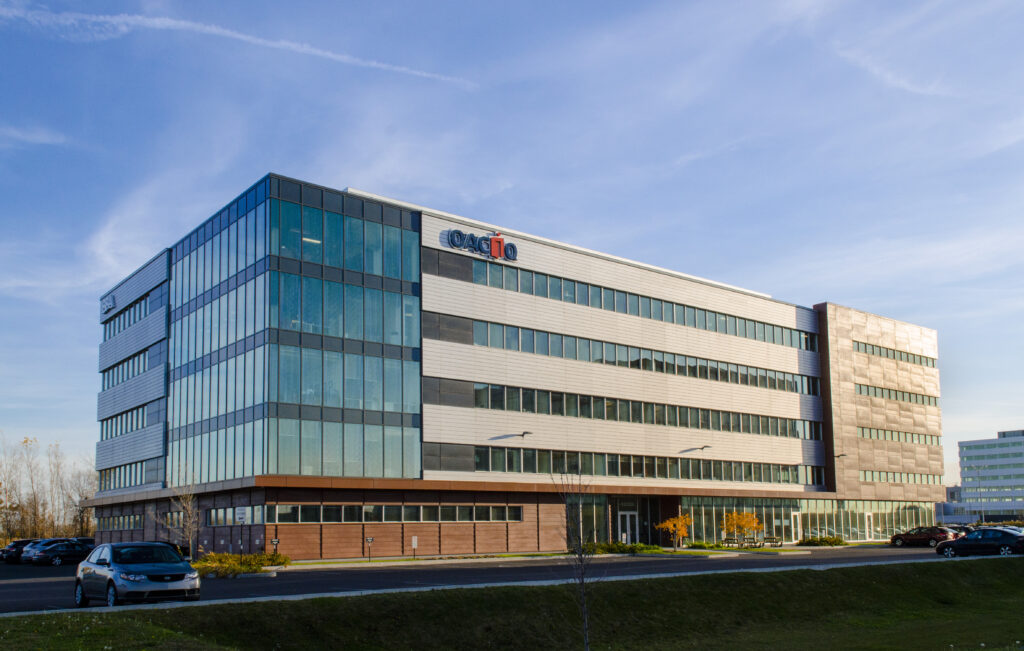YOU'RE IN GOOD HANDS
Our certified expert surgeons provide delicate, comfortable care.
APPOINTMENT REQUEST
You don’t need to be referred by a professional to meet us. Simply fill out this form to request an appointment with our specialists.
MEDICAL QUESTIONNAIRE
Facilitate your first visit by filling out your medical questionnaire.
OUR PROMISE
Your time is precious and specialized care may require multiple visits. We see our patients at their scheduled appointment time more with more than 95% success. We are also dedicated to minimize non-essential visits by communicating promptly and efficiently with you and your dentist. Email, text message, phone; we will respect your preferences!
FRIENDS, FAMILY AND COLLEAGUES
You don’t need to be referred by a professional to meet us. Several of our patients are referred by family members, by friends and by colleagues who were satisfied with their care. Just contact the office of your choice to schedule a meeting. If we then need your dental file, your medical file or your radiographs we will make the request ourselves.
FIRST MEETING
The consultation appointment with your surgeon and his coordinator generally lasts 30 to 45 minutes. It allows us to meet you, to examine you, to establish a treatment plan and to answer all your questions. It also allows us to book your surgery and follow-up visits, if required, and to give you all necessary prescriptions. To facilitate this first visit we invite you to fill out our medical questionnaire online.
ARRANGEMENTS
Our renowned expertise give us the opportunity to treat many patients from outside of the greater Montreal. We can assist you with travel and lodging arrangements to ensure the very best care.
OUR OFFICES
Two offices is a tremendous advantage for you. A surgeon is always on site, from Monday to Friday. You can be seen at the office of your choice, at the time of your choice, regardless if your care has begun or not.
INSURANCE AND PAYMENT
The treatment plan will include the fees related to your care and the appropriate codes for your dental insurance. That way you will know before treatment which portion is covered by your dental insurance and which portion is your responsibility. We will support you fully with your claims to your insurer. We accept, as forms of payment, cash, debit cards and credit cards such as Visa, Mastercard and American Express.
ENVIRONMENT
At Montréal Maxillo-Facial we care about the environment. We chose, for our ultra-modern Brossard office, a LEED-certified building. LEED (Leadership in Energy and Environmental Design) is an international standard of excellence for new buildings recognized in more than 132 countries.
We also implemented the following measures:
Par ailleurs, nous avons mis en place les mesures suivantes :
- We encourage electronic, rather than paper, communications with patients and colleagues;
- We use only 100% recycled paper, cardboard and envelopes;
- Charts and radiographs are completely electronic;
- Our equipment has been carefully chosen for its efficient and responsible electricity consumption.
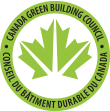
Our business hours are from Monday to Friday, from 7:30 AM to 4:00 PM.
Our schedules may vary during these periods.
FREQUENTLY ASKED QUESTIONS
Click on the questions of your choice to read our answers.
BEFORE SURGERY
A dental surgeon is a traditional term used to designate a general dentist. An oral and maxillofacial surgeon (formerly known as an oral surgeon) is a dentist who has obtained specialty training in surgery of a minimum of four additional years.
Wisdom teeth that are impacted (stuck inside the gums) or partially impacted are often asymptomatic, which means that they are not bothersome. However, these teeth will likely end up causing severe problems such as infection, damage of the neighbouring teeth (such as tooth decay or bone loss), cysts and other pathologies. The removal of those teeth, and the healing period, is much more predictable before the age of 20. Once your dentist has determined that your wisdom teeth will not completely erupt, it is safer to remove the them sooner than later.
At Montréal Maxillo-Facial, we are equipped with digital radiography. These machines use a much lower dose of radiation compared to conventional x-ray machines and therefore greatly reducing risks to your health.
There are two phases to dental implant therapy. The first one is the surgical phase which means having the titanium implant placed into your jawbone by an oral and maxillofacial surgeon. The second phase is the crown or prosthesis being fabricated and placed over the implant. It is recommended that these two treatment phases be provided by two different teams because of the differences in skill requirements and the better results provided by that approach.
With proper maintenance and hygiene a dental implant should last for the rest of your life.
The material of the dental implants has no allergenic components and is biocompatible with the body.
It is possible to have a removable or even fixed temporary denture fabricated for you during the treatment so that you are never left with a gap. Your surgeon will further discuss this with you at the time of consultation.
If teeth and the associated chewing load in the jaw are absent for an extended period, the bone gradually shrinks. If the bone structure is weakened or thin to the extent that there is little or nothing to hold an implant in place bone grafting may be necessary.
Having an implant treatment is an investment in your quality of life and the extent of your treatment will determine the cost. A detailed estimate will be prepared during your consultation appointment and following your evaluation.
Intravenous sedation is a safe, proven technique used daily in our practice. Only specialists in oral and maxillofacial surgery, thanks to their advanced training in anesthesia, can use this technique. Vital signs are monitored closely during the surgical procedure and, although quite rare, we are ready to handle any adverse reaction.
During the procedure there will not be any pain. However you may feel some level of manipulation, pressure and noises. Intravenous sedation is very helpful to reduce those undesirable sensations.
It is normal to have swelling following a surgical procedure. This will increase for up to 48 hours. It is important to apply ice for those first 48 hours.
You should wait until the anesthesia has worn off and then start with a soft diet. When you feel comfortable increase to harder foods.
A soft diet such as ice cream, yogurt, pudding, fish and pasta is recommended following surgery and for the first few days.
It is preferable for you not to return on the same day as the surgery. Some procedures require a few additional days of rest prior to your return to work or school.
Based on the type of procedure performed, we may recommend a few days without any strenuous physical activity.
Smoking can cause complications and delayed healing following surgery. We recommend not to smoke during that time.
We accept Visa, Mastercard, American Express, Debit card or cash. Please note we do not accept cheques.
AFTER SURGERY
Pain is a normal consequence of any surgery. Typically, it will last one to two weeks after mouth surgery.
No. Normal healing of the gums occurs that way. You do need, however, to keep the wound clean until complete healing.
Pain can be a sign of infection but it’s not the only one. Other common signs include redness and warmth of the cheek, new, firm or persistant swelling and pus drainage of the wound.
This can be a sign of infection but never by itself and not before 48 hours.
A unpleasant seeping of yellowish, clear fluid during healing is normal and is not a sign of infection.
Probably not. A clot (fibrin) or dental plaque are usually the reasons for that appearance.
This is usually due to the healing abutment getting unscrewed. Don’t panic. Let us know and keep it to bring with you at your next appointment. In rare cases, an implant can get infected during the healing phase and become mobile. This implant will need to be removed and, if possible, replaced.
Bleeding is an expected consequence following surgery of the mouth. It can last a few days and it’s usually well controlled by applying firm and continuous pressure with gauze. It is exceptional that an additional intervention is needed in this mater.
Cease the oxycodone if you are taking this opioid as it may cause nausea and vomiting. If the vomiting persists you can try taking an over the counter anti-nausea medication such as Gravol in suppository form and continue to use it until vomiting has stopped.
It’s normal. Jaw muscles are sensitive to inflammation. Moist heat, after 48 hours, applied to the cheek can help with return to normal.
BEFORE SURGERY
A dental surgeon is a traditional term used to designate a general dentist. An oral and maxillofacial surgeon (formerly known as an oral surgeon) is a dentist who has obtained specialty training in surgery of a minimum of four additional years.
Wisdom teeth that are impacted (stuck inside the gums) or partially impacted are often asymptomatic, which means that they are not bothersome. However, these teeth will likely end up causing severe problems such as infection, damage of the neighbouring teeth (such as tooth decay or bone loss), cysts and other pathologies. The removal of those teeth, and the healing period, is much more predictable before the age of 20. Once your dentist has determined that your wisdom teeth will not completely erupt, it is safer to remove the them sooner than later.
At Montréal Maxillo-Facial, we are equipped with digital radiography. These machines use a much lower dose of radiation compared to conventional x-ray machines and therefore greatly reducing risks to your health.
There are two phases to dental implant therapy. The first one is the surgical phase which means having the titanium implant placed into your jawbone by an oral and maxillofacial surgeon. The second phase is the crown or prosthesis being fabricated and placed over the implant. It is recommended that these two treatment phases be provided by two different teams because of the differences in skill requirements and the better results provided by that approach.
With proper maintenance and hygiene a dental implant should last for the rest of your life.
The material of the dental implants has no allergenic components and is biocompatible with the body.
It is possible to have a removable or even fixed temporary denture fabricated for you during the treatment so that you are never left with a gap. Your surgeon will further discuss this with you at the time of consultation.
If teeth and the associated chewing load in the jaw are absent for an extended period, the bone gradually shrinks. If the bone structure is weakened or thin to the extent that there is little or nothing to hold an implant in place bone grafting may be necessary.
Having an implant treatment is an investment in your quality of life and the extent of your treatment will determine the cost. A detailed estimate will be prepared during your consultation appointment and following your evaluation.
Intravenous sedation is a safe, proven technique used daily in our practice. Only specialists in oral and maxillofacial surgery, thanks to their advanced training in anesthesia, can use this technique. Vital signs are monitored closely during the surgical procedure and, although quite rare, we are ready to handle any adverse reaction.
During the procedure there will not be any pain. However you may feel some level of manipulation, pressure and noises. Intravenous sedation is very helpful to reduce those undesirable sensations.
It is normal to have swelling following a surgical procedure. This will increase for up to 48 hours. It is important to apply ice for those first 48 hours.
You should wait until the anesthesia has worn off and then start with a soft diet. When you feel comfortable increase to harder foods.
A soft diet such as ice cream, yogurt, pudding, fish and pasta is recommended following surgery and for the first few days.
It is preferable for you not to return on the same day as the surgery. Some procedures require a few additional days of rest prior to your return to work or school.
Based on the type of procedure performed, we may recommend a few days without any strenuous physical activity.
Smoking can cause complications and delayed healing following surgery. We recommend not to smoke during that time.
We accept Visa, Mastercard, American Express, Debit card or cash. Please note we do not accept cheques.
AFTER SURGERY
Pain is a normal consequence of any surgery. Typically, it will last one to two weeks after mouth surgery.
No. Normal healing of the gums occurs that way. You do need, however, to keep the wound clean until complete healing.
Pain can be a sign of infection but it’s not the only one. Other common signs include redness and warmth of the cheek, new, firm or persistant swelling and pus drainage of the wound.
This can be a sign of infection but never by itself and not before 48 hours.
A unpleasant seeping of yellowish, clear fluid during healing is normal and is not a sign of infection.
Probably not. A clot (fibrin) or dental plaque are usually the reasons for that appearance.
This is usually due to the healing abutment getting unscrewed. Don’t panic. Let us know and keep it to bring with you at your next appointment. In rare cases, an implant can get infected during the healing phase and become mobile. This implant will need to be removed and, if possible, replaced.
Bleeding is an expected consequence following surgery of the mouth. It can last a few days and it’s usually well controlled by applying firm and continuous pressure with gauze. It is exceptional that an additional intervention is needed in this mater.
Cease the oxycodone if you are taking this opioid as it may cause nausea and vomiting. If the vomiting persists you can try taking an over the counter anti-nausea medication such as Gravol in suppository form and continue to use it until vomiting has stopped.
It’s normal. Jaw muscles are sensitive to inflammation. Moist heat, after 48 hours, applied to the cheek can help with return to normal.
OUR LOCATIONS
POINTE-CLAIRE
755 Saint-Jean Boulevard, suite 601
Pointe-Claire QC
H9R 5M9
(514) 630-6735
- MAP
- PARKING
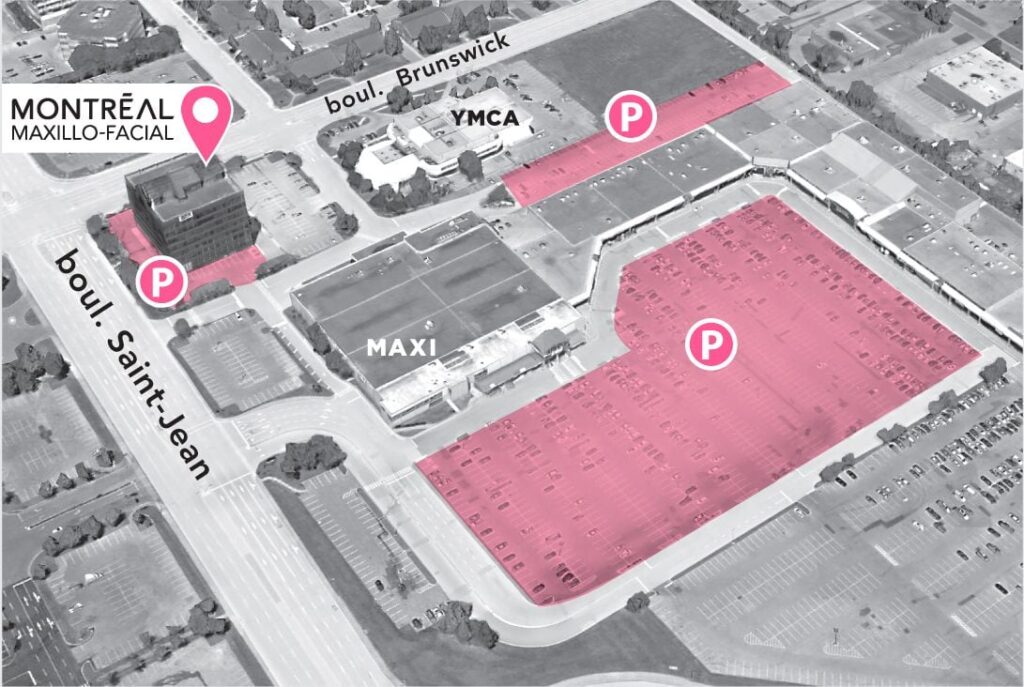
BROSSARD
4905 Lapinière Boulevard, suite 4400
Brossard QC
J4Z 0G2
(450) 676-3613
- MAP
- PARKING
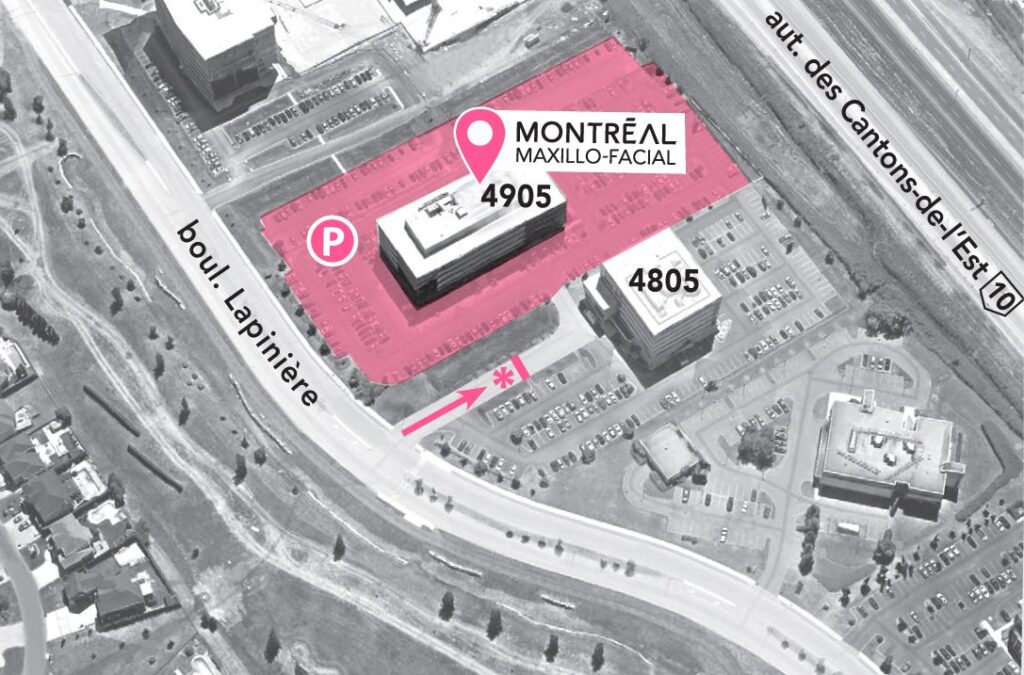
POINTE-CLAIRE
Founded in 1987
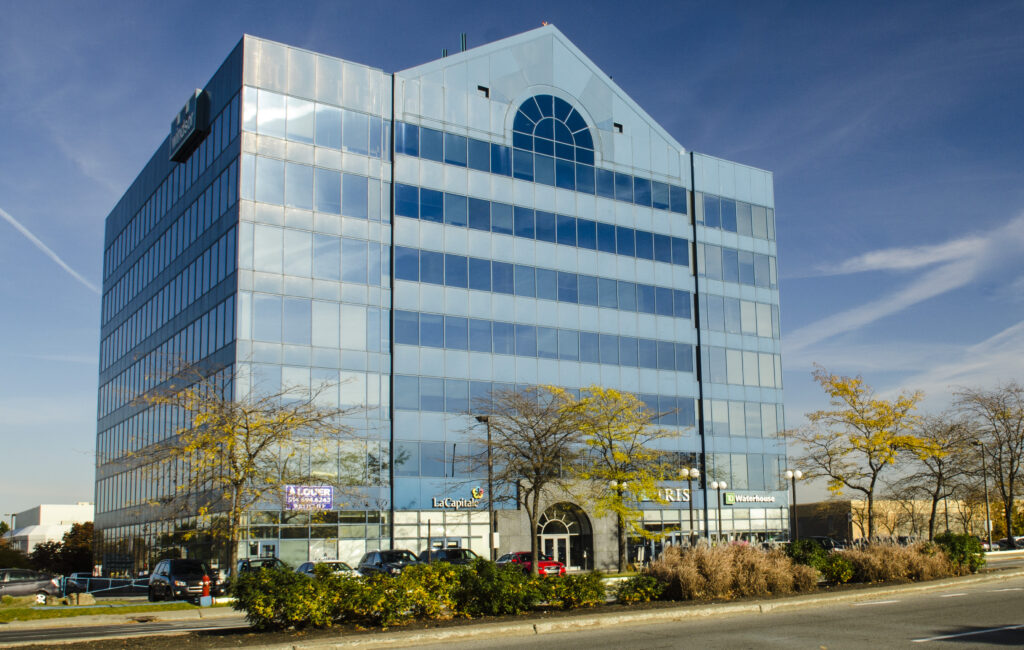
BROSSARD
First LEED-certified dental office in Canada

